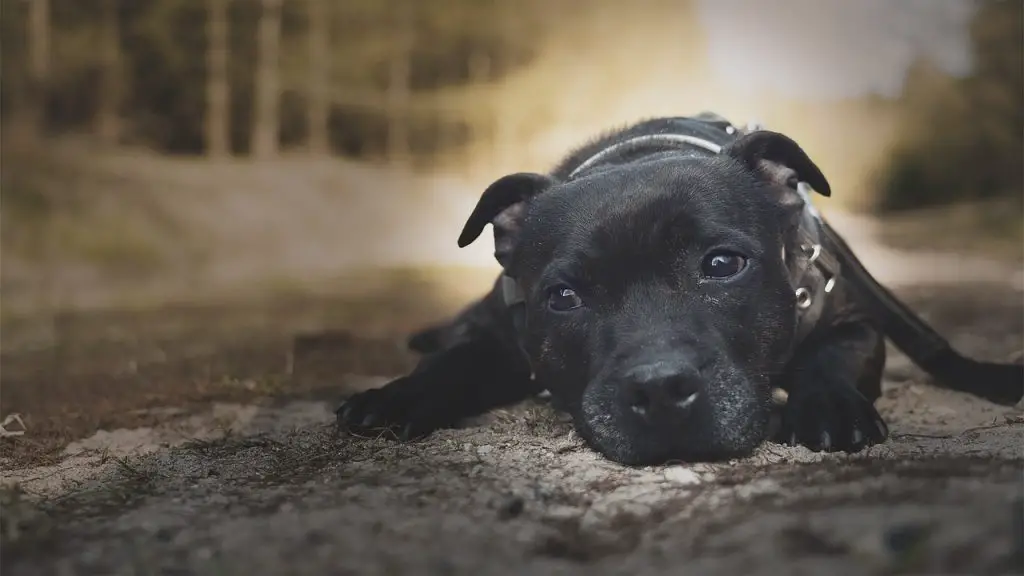It can be deeply unsettling to see your dog shaking and panting during the night. These symptoms may disturb your dog’s rest—and yours—and often suggest discomfort, anxiety, or even an underlying medical issue that becomes more noticeable after dark.
We outline the common causes of dog shaking and panting at night, what you can do at home, and when to seek veterinary help.
Dog Shaking and Panting at Night — Why It Happens
Dogs may shake and pant at night due to pain, anxiety, overheating, cognitive decline, or undiagnosed medical issues. The stillness and quiet of nighttime often make symptoms more noticeable, and physical discomfort can intensify when dogs try to rest. In senior dogs, these behaviors can also point to age-related changes.

Common Causes of Dog Shaking and Panting at Night
Anxiety or Nighttime Stress
Many dogs feel more vulnerable at night, especially when left alone in a dark, quiet space.
Separation anxiety, changes in household routine, or recent loud events (like thunderstorms or fireworks) can lead to nighttime restlessness.
Panting and shaking are common signs of anxiety. Dogs may also pace, whine, or refuse to settle.
Providing soft lighting, calming music, or a familiar scent may help reduce anxiety during bedtime.
Pain or Discomfort
Pain from arthritis, injury, or internal illness can worsen when dogs lie down or shift positions.
Older dogs with joint problems may find it harder to get comfortable, especially on hard or cold surfaces.
Shaking is often a pain response, and panting may result from stress or discomfort.
If your dog avoids lying down, pants heavily without exertion, or groans when moving, pain is a strong possibility.
Cognitive Dysfunction (Canine Dementia)
In senior dogs, nighttime shaking and panting can signal cognitive decline.
Canine Cognitive Dysfunction Syndrome (CDS) is similar to Alzheimer’s in humans and can disrupt sleep-wake cycles.
Affected dogs may seem confused at night, pace aimlessly, vocalize, or appear anxious in familiar settings.
Veterinarians can recommend supplements, medications, or environmental changes to support restful sleep.
Related: Dog shaking and not eating (Causes and what to do)
Overheating or Poor Ventilation
If your dog’s sleeping space is too warm or poorly ventilated, they may pant and tremble from discomfort.
This is especially common in brachycephalic (flat-faced) breeds, older dogs, or overweight pets.
Check for signs like hot ears, drooling, glassy eyes, or seeking cool surfaces.
Improving airflow, reducing bedding layers, or using fans may help alleviate mild overheating.
Internal Medical Issues
Heart disease, respiratory disorders, hormonal imbalances (like Cushing’s disease), and gastrointestinal distress can all trigger shaking and panting—especially when your dog is at rest.
These conditions may present more obviously at night, when there are fewer distractions and lower activity levels.
Other signs include coughing, vomiting, diarrhea, changes in thirst, or reduced appetite.
Veterinary testing may include chest x-rays, bloodwork, or ultrasound to uncover the cause.
What to Do If Your Dog Is Shaking and Panting at Night
Check the room temperature and ensure your dog has access to cool, well-ventilated air.
Offer water and a soft, supportive bed—especially important for older dogs or those with arthritis.
Sit calmly with your dog to provide reassurance and observe whether they settle after a few minutes.
Try to reduce external stressors (loud sounds, bright lights) and keep a consistent nighttime routine.
Take note of how long the symptoms last, their frequency, and whether they worsen over time.
If symptoms are new, intense, or paired with other physical signs, call your vet the next morning.
When to Call or Visit Your Vet
Seek veterinary care if your dog:
Shakes and pants nightly or more than once per week
Shows signs of pain, confusion, or disorientation
Refuses to settle or rest for extended periods
Has other symptoms like vomiting, coughing, or loss of appetite
Is a senior dog showing behavior changes or confusion
Your vet may recommend pain management, anxiety treatment, blood tests, or diagnostic imaging based on your dog’s history.
Read more: Dog Shaking and Licking lips (Is it emotional distress—or pain?)
Key Takeaway
Shaking and panting at night is your dog’s way of signaling discomfort, fear, or a potential health concern.
Keep a close watch on patterns, provide a calm and cool environment, and consult your vet if these episodes are frequent or severe. Your dog’s nighttime comfort could reveal much about their overall well-being.
